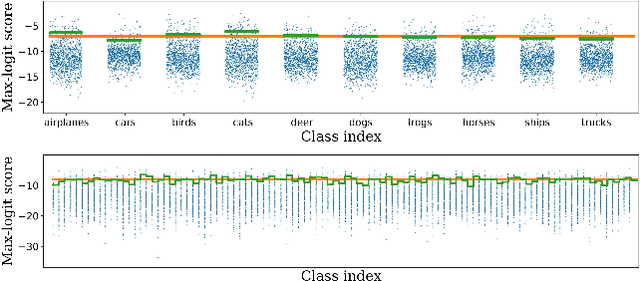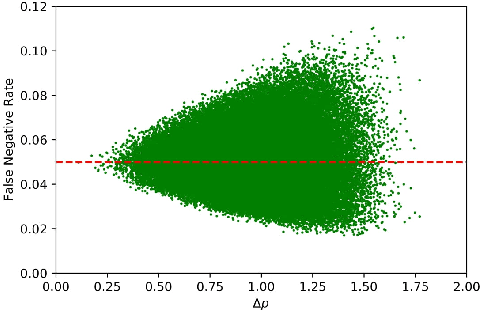Tung-Wei Lin
Systematic Evaluation of Knowledge Graph Repair with Large Language Models
Jul 30, 2025Abstract:We present a systematic approach for evaluating the quality of knowledge graph repairs with respect to constraint violations defined in shapes constraint language (SHACL). Current evaluation methods rely on \emph{ad hoc} datasets, which limits the rigorous analysis of repair systems in more general settings. Our method addresses this gap by systematically generating violations using a novel mechanism, termed violation-inducing operations (VIOs). We use the proposed evaluation framework to assess a range of repair systems which we build using large language models. We analyze the performance of these systems across different prompting strategies. Results indicate that concise prompts containing both the relevant violated SHACL constraints and key contextual information from the knowledge graph yield the best performance.
Class-wise Thresholding for Detecting Out-of-Distribution Data
Nov 24, 2021



Abstract:We consider the problem of detecting OoD(Out-of-Distribution) input data when using deep neural networks, and we propose a simple yet effective way to improve the robustness of several popular OoD detection methods against label shift. Our work is motivated by the observation that most existing OoD detection algorithms consider all training/test data as a whole, regardless of which class entry each input activates (inter-class differences). Through extensive experimentation, we have found that such practice leads to a detector whose performance is sensitive and vulnerable to label shift. To address this issue, we propose a class-wise thresholding scheme that can apply to most existing OoD detection algorithms and can maintain similar OoD detection performance even in the presence of label shift in the test distribution.
 Add to Chrome
Add to Chrome Add to Firefox
Add to Firefox Add to Edge
Add to Edge